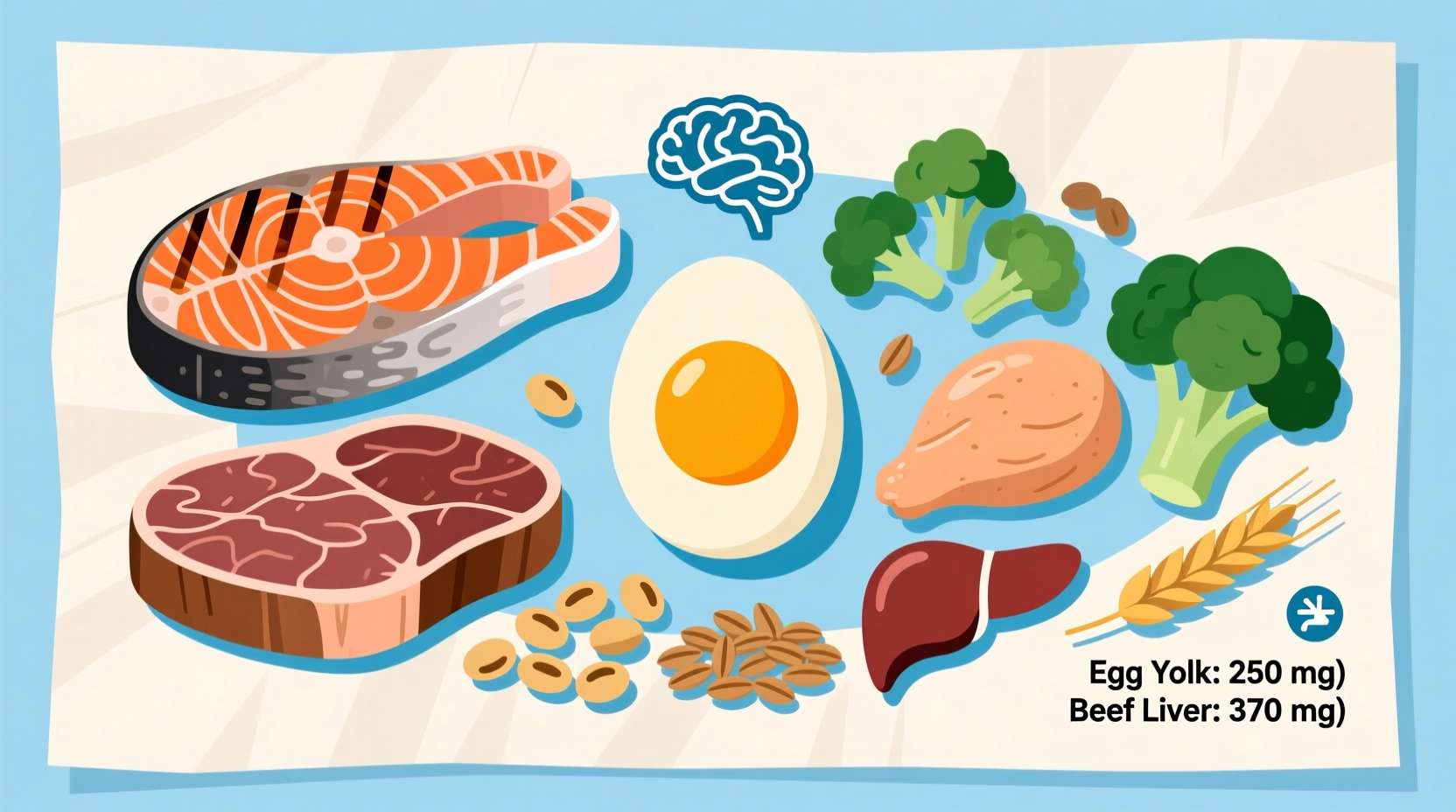Choline often flies under the nutritional radar despite being as vital as B vitamins for cognitive function and cellular health. This comprehensive guide reveals exactly which foods deliver optimal choline intake, how much you need based on your life stage, and practical ways to incorporate these foods into your daily meals. Whether you're an expectant mother, fitness enthusiast, or simply optimizing your diet, you'll discover precisely how to meet your choline requirements through food sources.
Why Choline Matters More Than You Think
Choline serves as a building block for acetylcholine, a neurotransmitter essential for memory and muscle control. The National Institutes of Health confirms choline's critical role in fetal brain development, with pregnant women requiring 450 mg daily. Unlike some nutrients, your body can't produce sufficient choline independently—making dietary intake non-negotiable. Deficiency symptoms include memory problems, mood disturbances, and in severe cases, liver damage.
Top Choline Food Sources by Category
Understanding choline concentrations helps optimize your dietary planning. The USDA FoodData Central provides verified measurements for common foods. Here's what matters most for different dietary preferences:
| Food Source | Serving Size | Choline (mg) | Percent Daily Value* |
|---|---|---|---|
| Beef liver | 3 oz | 356 | 65% |
| Egg (whole) | 1 large | 147 | 27% |
| Salmon | 3 oz | 62 | 11% |
| Cooked soybeans | 1 cup | 107 | 20% |
| Shiitake mushrooms | 1 cup | 37 | 7% |
*Based on 550 mg daily value for adults. Percentages calculated for adult males; requirements vary by age and gender.
Maximizing Choline Absorption: Practical Strategies
Simply consuming choline-rich foods isn't enough—you need to optimize absorption. Professional chefs and nutrition researchers have identified key preparation techniques that preserve choline content:
- Egg preparation matters: Boiling or poaching preserves more choline than frying at high temperatures
- Combine with healthy fats: Choline absorption increases when consumed with monounsaturated fats like olive oil
- Avoid overcooking: High-heat methods degrade choline in fish and meats—aim for medium-rare to medium
- Pair with cruciferous vegetables: Broccoli and Brussels sprouts contain compounds that enhance choline utilization

Dietary Considerations for Special Populations
Different life stages and dietary preferences require tailored choline strategies. The American College of Obstetricians and Gynecologists emphasizes that 90-95% of pregnant women don't meet choline requirements, potentially affecting fetal brain development. Vegetarians and vegans face unique challenges since animal products contain the most bioavailable choline forms.
For pregnancy: Increase egg consumption to 2-3 daily while incorporating choline-rich plant sources like quinoa and peanuts. Prenatal supplements typically don't contain sufficient choline—food sources remain essential.
For plant-based diets: Focus on combining multiple sources—soy products, quinoa, and cruciferous vegetables—to reach the 425 mg daily target. Fermented soy like tempeh offers better absorption than unfermented varieties.
Common Choline Myths Debunked
Nutritional misinformation abounds regarding choline. Let's clarify three prevalent misconceptions:
- "Egg yolks are unhealthy": Research published in the American Journal of Clinical Nutrition confirms that for 70% of people, dietary cholesterol from eggs doesn't significantly impact blood cholesterol levels. The choline in yolks provides critical cognitive benefits.
- "Supplements replace food sources": While supplements help in deficiency cases, whole foods provide phosphatidylcholine—the most bioavailable form—which works synergistically with other nutrients in food.
- "Only pregnant women need choline": Athletes require additional choline for muscle function and recovery, while older adults need it for cognitive preservation. Everyone needs this essential nutrient daily.
Building a Choline-Rich Meal Plan
Implementing choline-rich foods doesn't require drastic dietary changes. Here's a realistic one-day plan delivering 550+ mg of choline:
- Breakfast: 2-egg omelet with mushrooms and spinach (300 mg)
- Lunch: Quinoa salad with chickpeas and roasted shiitake mushrooms (120 mg)
- Dinner: 4-ounce salmon portion with roasted Brussels sprouts (130 mg)
This approach exceeds daily requirements while providing balanced nutrition. For vegetarians, substitute salmon with additional soy products and eggs to maintain adequate intake.











 浙公网安备
33010002000092号
浙公网安备
33010002000092号 浙B2-20120091-4
浙B2-20120091-4